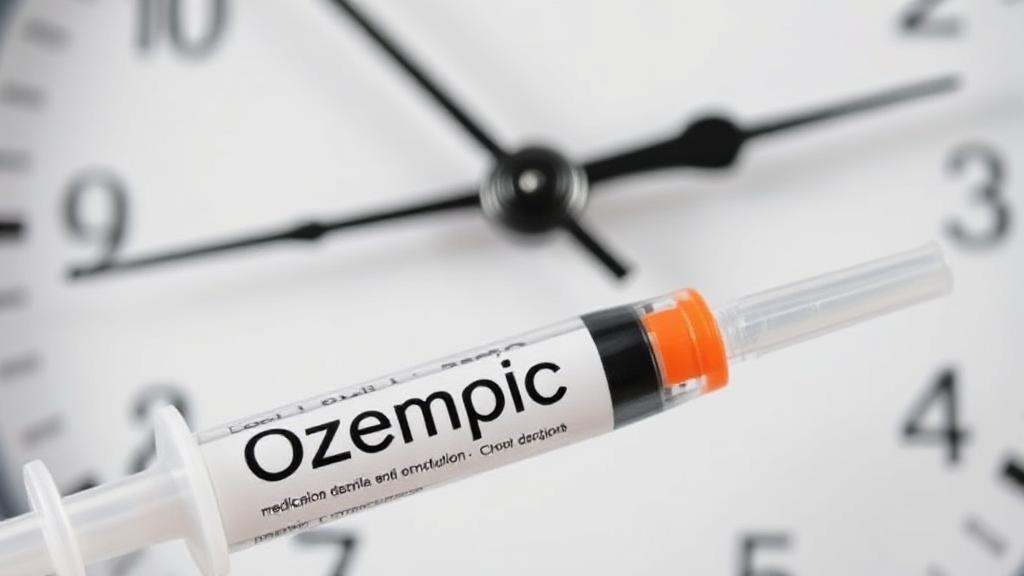Understanding Ozempic
Ozempic (semaglutide) is a medication primarily used to manage blood sugar levels in individuals with type 2 diabetes. It belongs to a class of drugs known as GLP-1 receptor agonists, which work by mimicking the action of the hormone GLP-1 to stimulate insulin secretion and lower blood sugar levels.
How Ozempic Works
Ozempic helps control blood sugar levels by:
- Stimulating insulin secretion: It enhances the body's natural ability to release insulin in response to high blood sugar levels
- Reducing glucagon secretion: It decreases the amount of glucagon, a hormone that raises blood sugar levels
- Slowing gastric emptying: This helps to reduce the rate at which glucose enters the bloodstream after meals
For more detailed information on how Ozempic works, you can visit the official Ozempic website.
Duration in the Body
Half-Life and Elimination
The half-life of Ozempic is approximately 7 days (168 hours). This means it takes about a week for the concentration of the drug in the bloodstream to reduce by half. Complete elimination typically takes about 5 weeks after the last dose.
The elimination process follows this timeline:
- First week: Highest concentration of medication
- Weeks 2-3: Gradual decrease in blood levels
- Weeks 4-5: Final elimination phase
Time to Steady State
When starting Ozempic, it takes about 4 to 5 weeks to reach a steady state, where the amount of drug being administered equals the amount being eliminated.
Factors Influencing Duration
Several factors can affect how long Ozempic stays in your system:
- Body mass and composition
- Liver and kidney function
- Age
- Overall metabolic rate
- Concurrent medications
- Dosage amount
Clinical Management
If you miss a dose, the FDA recommends:
Monitoring and Safety
Regular monitoring is essential during treatment, including:
- Blood glucose levels
- GI side effects
- Kidney function
- Pancreatic enzymes
Common Side Effects
- Nausea
- Vomiting
- Diarrhea
- Abdominal pain
For a comprehensive list of side effects, refer to the Mayo Clinic's guide on Ozempic.
Storage and Stability
To maintain optimal duration and effectiveness:
- Store unused pens in refrigerator (36°F to 46°F)
- In-use pens can be stored at room temperature for up to 56 days
- Protect from light and heat
For optimal treatment outcomes, always follow your healthcare provider's instructions and maintain open communication about any concerns or side effects. Regular monitoring and proper medication management ensure the best possible results from Ozempic therapy.
For more detailed information, visit the FDA's prescribing information for Ozempic.
